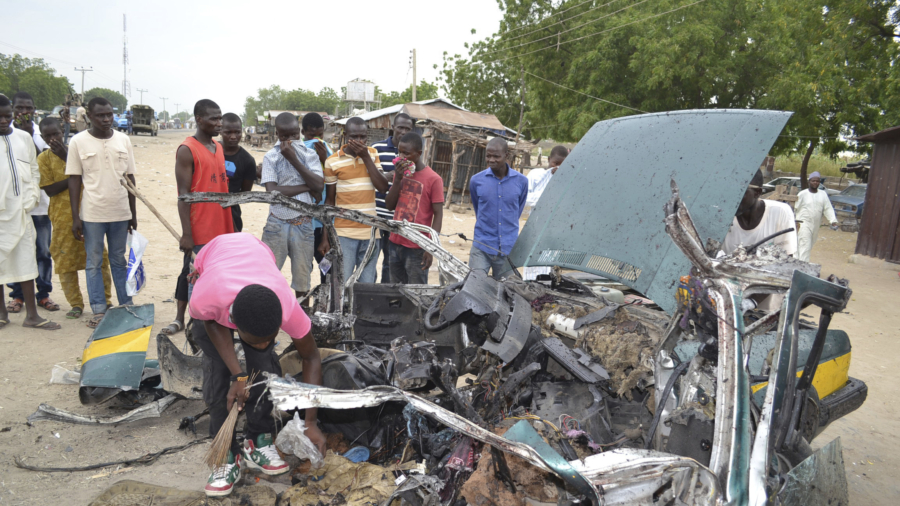DAKAR, Senegal (AP)—Radical Islamic terrorists from Boko Haram are increasingly forcing children to carry out bombings, with the number of attacks since January already nearly reaching the total for all of last year, according to a report released Wednesday by the U.N. children’s agency.
UNICEF says at least 117 attacks have been carried out by youth in the Lake Chad basin region since 2014, with nearly 80 percent of the bombs strapped to girls, who were sometimes drugged before their missions.
The very sight of children near marketplaces and checkpoints is sparking fear, according to Marie-Pierre Poirier, UNICEF’s regional director for West and Central Africa. As a result, nearly 1,500 children were detained last year across Nigeria, Cameroon, Niger and Chad.
“These children are victims, not perpetrators,” Poirier said. “Forcing or deceiving them into committing such horrific acts is reprehensible.”
Wednesday’s report coincides with this weeks’ third anniversary of the mass abduction of Chibok schoolgirls by Boko Haram, which has pledged allegiance to the Islamic State.
The mass abduction of 276 girls from a boarding school in Nigeria mobilized an international campaign to find and free the girls, many of whom were forced into marriages with fighters and became pregnant. Dozens quickly escaped, and 21 were freed in October through negotiations with Boko Haram mediated by the Swiss government and the International Committee of the Red Cross.
The government denied a ransom was paid and that it freed some detained Boko Haram fighters in exchange for the girls. At that time, officials said they were pressing on with negotiations and expected the release of a second group but no more have been freed.

UNICEF emphasized Wednesday that beyond the high-profile Chibok abductions, the practice of kidnapping children and forcing them to associate with the armed group has been prevalent.
“Young girls are spotted in the markets, and nighttime raids drag them from their beds. In some cases, parents are killed in front of the girls during the process,” it said. “This is typically followed by an extended journey to a Boko Haram base in the forest where the girls are forced into early marriage and sexual slavery.”
UNICEF also called for the community reintegration of children who were once under Boko Haram’s control, saying many are stigmatized and feared. However, a $154 million appeal last year for the Lake Chad basin region remains only 40 percent funded, the agency said.



